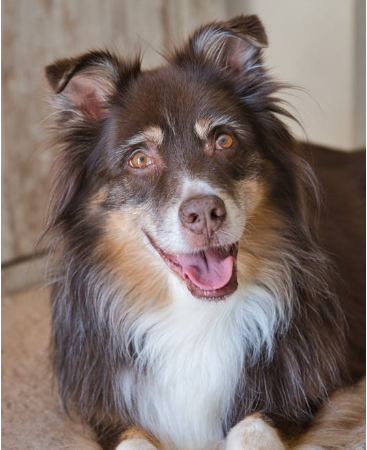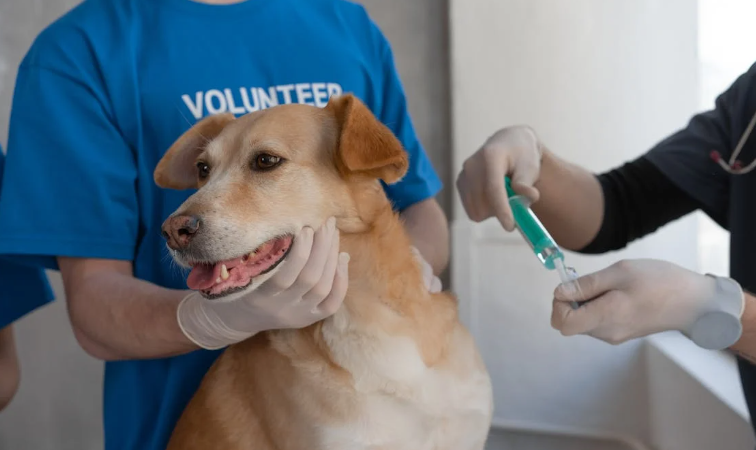Bernese Mountain Dog

Introduction:
When it comes to canine companions, few breeds capture the heart and imagination quite like the Bernese Mountain Dog. Known for their striking appearance, gentle demeanor, and unwavering loyalty, these majestic dogs have won the admiration of dog lovers worldwide. In this comprehensive guide, we’ll delve into the fascinating world of the Bernese Mountain Dog, exploring their history, characteristics, care requirements, and more.
Origins and History
The Bernese Mountain Dog, often affectionately referred to as Berners, traces its roots back to the rural farms of Switzerland. Originally bred as versatile working dogs, Berners played a vital role in hauling carts, herding livestock, and guarding homesteads in the Swiss Alps. Their sturdy build, exceptional strength, and calm disposition made them invaluable assets to farmers and dairymen in the region.
Appearance and Temperament
Bernese Mountain Dogs are instantly recognizable by their striking tri-color coat, which typically features a black base with rich rust and white markings. With their expressive dark eyes, gentle expression, and imposing size, Berners possess a commanding presence that belies their affectionate nature. Despite their large stature, these dogs are renowned for their gentle and docile temperament, making them excellent companions for families, children, and other pets.

Care and Maintenance
While Bernese Mountain Dogs make wonderful pets, their large size and thick double coat require diligent care and maintenance. Regular grooming is essential to keep their coat healthy and free of mats, especially during shedding season. Additionally, Berners thrive on regular exercise and mental stimulation, so daily walks, playtime, and training sessions are crucial to their well-being. It’s also important to provide them with a nutritious diet tailored to their size, age, and activity level to ensure optimal health and longevity.
Health Considerations
Like all breeds, Bernese Mountain Dogs are prone to certain health issues, including hip dysplasia, elbow dysplasia, and certain types of cancer. Responsible breeders strive to minimize these risks through careful breeding practices and health screenings. Prospective owners should be prepared for potential medical expenses and invest in regular veterinary check-ups to monitor their Berner’s health closely.
Bernese Mountain Dog Preferred Foods:
Bernese Mountain Dogs thrive on a well-balanced diet that provides essential nutrients to support their overall health and vitality. Here are some key considerations when choosing food for your Berner:
High-Quality Dog Food:
Opt for premium dog food brands that contain high-quality ingredients, including meat, whole grains, fruits, and vegetables. Look for options specifically formulated for large breeds or all life stages to meet the nutritional needs of Bernese Mountain Dogs.
Protein:
Protein is essential for muscle development and maintenance in Bernese Mountain Dogs. Choose dog foods with a high protein content sourced from quality animal protein sources such as chicken, beef, lamb, or fish.
Healthy Fats:
Healthy fats provide a concentrated source of energy and support skin and coat health in Berners. Look for dog foods that contain omega-3 and omega-6 fatty acids, often sourced from ingredients like fish oil or flaxseed, to promote a shiny coat and healthy skin.
Moderate Carbohydrates:
Carbohydrates are an important source of energy for Bernese Mountain Dogs, but they should be provided in moderation. Look for dog foods that include whole grains like brown rice, barley, or oats, which provide fiber and energy without causing spikes in blood sugar levels.
Fruits and Vegetables:
Incorporating fruits and vegetables into your Berner’s diet can provide essential vitamins, minerals, and antioxidants. Look for dog foods that contain a variety of fruits and vegetables such as sweet potatoes, peas, carrots, and berries to support overall health and immunity.
Avoid Fillers and Artificial Additives:
Steer clear of dog foods that contain fillers, by-products, artificial preservatives, colors, and flavors. These ingredients offer little nutritional value and may contribute to digestive issues or food sensitivities in Bernese Mountain Dogs.
Consult with a Veterinarian:
Every Berner is unique, and their dietary needs may vary based on factors such as age, activity level, and any underlying health conditions. Consult with your veterinarian to determine the best diet plan for your Bernese Mountain Dog and to address any specific dietary concerns or requirements.
Provide fresh water at all times and monitor your Berner’s weight and body condition to ensure, they are maintaining a healthy and balanced diet. By feeding your Bernese Mountain Dog a nutritious and well-rounded diet, you can help support their overall health and longevity.
Frequently Asked Questions (FAQ)
1. Are Bernese Mountain Dogs good family pets?
– Absolutely! Berners are known for their gentle and affectionate nature, making them excellent companions for families with children and other pets. They thrive on human interaction and love to be part of the family.
2. Do Bernese Mountain Dogs require a lot of exercise?
– While Berners are not excessively high-energy dogs, they do require daily exercise to stay healthy and happy. Regular walks, playtime, and opportunities to explore the outdoors are essential to meet their physical and mental needs.
3. How much grooming do Bernese Mountain Dogs need?
– Berners have a dense double coat that requires regular grooming to prevent mats and tangles. Weekly brushing, especially during shedding season, is recommended to keep their coat in good condition.
4. Are Bernese Mountain Dogs prone to health problems?
– Unfortunately, Bernese Mountain Dogs are susceptible to certain genetic health issues, including hip dysplasia, elbow dysplasia, and certain types of cancer. Responsible breeding practices and regular veterinary care can help minimize these risks.
5. Are Bernese Mountain Dogs easy to train?
– While Berners are intelligent and eager to please, they can also be stubborn at times. Consistent training, positive reinforcement, and patience are key to successfully training a Bernese Mountain Dog.
Conclusion:
In conclusion, the Bernese Mountain Dog is a truly remarkable breed beloved for its gentle nature, striking appearance, and unwavering loyalty. Whether working on a Swiss farm or lounging at home with its family, the Berner embodies the perfect balance of strength, grace, and companionship.
By understanding their history, characteristics, and care requirements, prospective owners can ensure a fulfilling and enriching relationship with this majestic canine companion.
For further information, please don’t hesitate to visit our website.




